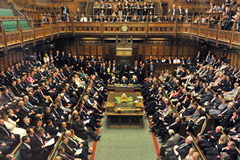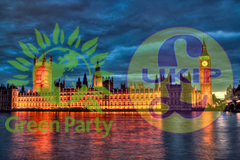Having been pleasantly surprised at their ability to form a majority government following the General Election in May, the Conservative Party must have thought all their Christmases’ had come at once when the Labour Party, post-election, inexplicably elected a new leader who has as much chance of walking into Downing Street as Prime Minister as I have of scoring a cup winning goal for Everton.
However, from basking in the glory of their main opposition’s collective suicide mission, the Tories must guard against complacency, and returning to the deep party splits that, in significant part, led to its downfall in 1997.
Europe, the Osborne austerity agenda and politicians egos will be the challenges that will face the government in what is now likely to be a ten years stretch in power.
This week’s Tory conference was the first in what will be a series of beauty contests for the leading role, as David Cameron somewhat prematurely announced he would be stepping down following his second stint in number ten.
The main contenders are Boris, Teresa May and George Osborne. With what many would describe as an impressive handling of the economy; his Northern Powerhouse initiative; and the general acceptance that he ran the successful election campaign back in the spring, the chancellor is clearly seen as the favourite.
However, the one thing history does tell us about the Tories is that they don’t often do the obvious when it comes to electing leaders – and favourites are usually left shell shocked as party members look for something a little bit different.
Margaret Thatcher came from nowhere to succeed Edward Heath in the mid-seventies. Heseltine and Portillo were much more favoured than Major and Hague. Who would have thought Iain Duncan Smith could win a raffle, never mind the top job as leader of Her Majesty’s official opposition, and David Cameron was the outsider when he succeeded Michael Howard.
If I was a betting man I would still put my money on George. But don’t write off the chances of lesser known candidates in the field, and keep a particular eye on business minister and West Midlands MP Sajid Javid.







